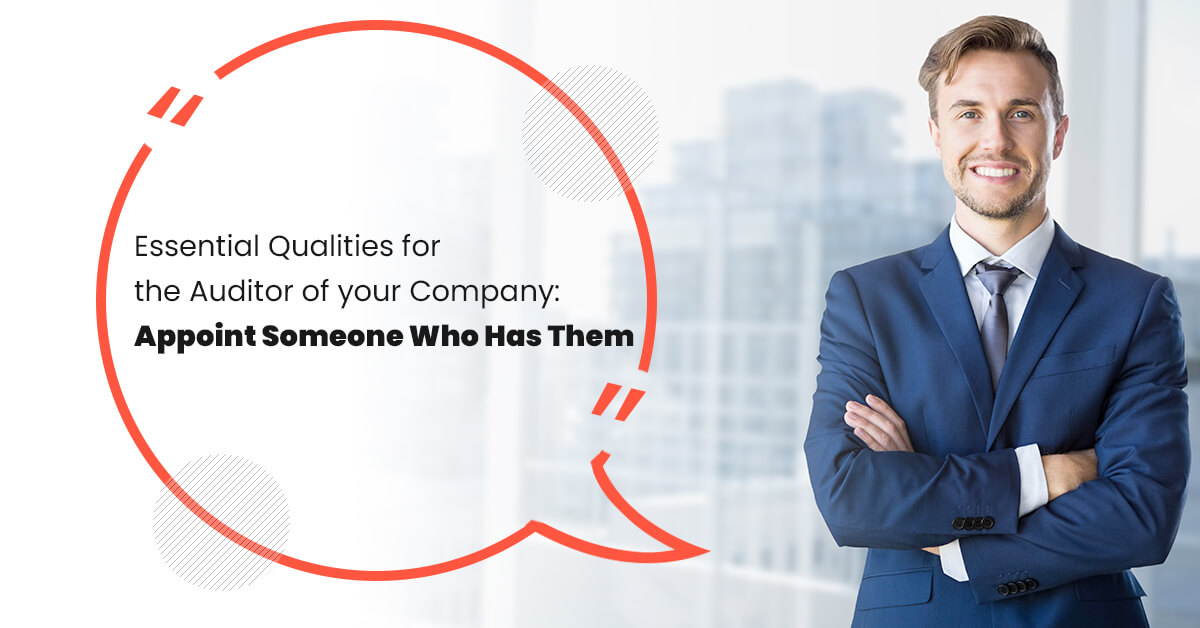
Internal auditing is quite a comprehensive process for businesses usually conducted before the organisation applies for an ISO certification or any other certification. It is intended to help the managers discover flaws or nonconformities in their management system. Therefore, auditing is necessary when you implement a dedicated management system like ISO 9001, ISO 14001 or ISO 45001. However, the success of an audit always lies in essential qualities of the auditor of a company. While the audit process involves critical evaluation of the management system including its procedures, documentation, and performance metrics, auditors must have the requisite set of skills to do that. Apart from the technical skills, there are certain interpersonal skills that an auditor should possess to be empathic to managers as well as employees.
Internal auditing is mostly done by an independent auditor, who is a part of the company but doesn’t have any biasness or personal attachment to anyone in the company. If a company does not have someone like that, they need to hire an auditor from an external agency. The following section of the article discusses the essential skills which an internal auditor should have.
Before we investigate the qualities of auditor, let’s understand the key auditing principles. They should be followed to make an internal audit process valuable to the business.
• Professionalism – The auditor must be able to conduct the audit with due diligence and fair judgment
• Confidentiality and integrity – The information used or collected from the audit must be properly handled and secured
• Fair presentation – The auditor must present the report of the audit accurately and honestly
• Impartiality – The auditor must be independent in assessing the system and maintain objectivity in declaring the conclusions
• Evidence-based approach – To reach reliable audit outcomes, the audit must be done systematically and by assessing true facts
All these principles imply that an auditor must have unique qualities to perform the audit.
To qualify as an auditor, the official of your company must have adequate practical experience. Since there are several complications and numerous time-consuming steps involved in the audit process, it is not easy for any official to gain the required auditing knowledge. It is only after years of working that they become adept at it. To put it more simply, the more audits an auditor conducts, the more competent they become at it.
Also, it is obvious that the auditors can update their technical knowledge, evaluation methods and investigative skills when they have spent more years working in the same field. Therefore, having years of experience ensures that your auditor can effortlessly audit your specific management system no matter how complex its procedures are requirements are.
Since the auditors need to coordinate with the employees and management officials and evaluate the internal processes of the organisation, they need to have appropriate corporate work ethics. This implies that they should have a professional approach while examining the processes, interviewing the concerned employees, or mentoring them. They should be good at hearing the opinions of the employees, even if they conflict with them. The auditors must be aware of the frustration that may come across the entire auditing process. It is not just time-consuming but also gets complicated at some points. Therefore, the auditors should be able to devote their energy and remain persistent at deriving valuable outcomes from the audit.
Being able to provide impartial or objective conclusions of the audit is the most significant quality of the internal auditor. The report prepared and presented by them at the end should not be influenced by any employees or dominant members of your company. The evaluation actions of the auditors and findings of the audit should be purely based on the careful analysis of the management system and processes of the organisation. It means the auditor should follow an evidence-based approach to reach any conclusion.
In case a conflict of interests during employee interviews or investigation emerges, the auditor should go to the root cause of the conflict. There should be no place for confusing or unclear opinions in the audit report which make it useful for the certification process.
No doubt, auditing is a comprehensive and complex process. The auditor should have time-management skills to schedule the process and complete it within the minimal possible timeframe.
Besides, your company’s day-to-day operations may be disrupted during the process as many of the employees need to spend time to cooperate and assist the auditor. Therefore, it is necessary for auditors to have time management capabilities to complete the audit in the scheduled time.
Auditors should have business-specific understanding i.e., able to work with your business structures and the management system that you intend to get certified. To ensure the audit results are valuable for your ISO certification journey, they should have knowledge of the particular standard, its clauses and requirements. Only then, they can ensure the conformity of your implemented management system to the standard. Besides that, they also need to be aware of the context of your company to the standard, different regulatory and statutory requirements, and potential challenges/risks.
Communication between the auditor and the organisation’s members is necessary to go smoothly. The ability to communicate well with the employees or supervisors of the management system also creates a positive friendly environment during the audit process. They should be able to discuss the audit report including the nonconformities and critical observations with the concerned personnel. Communication skills also means the ability of the auditors to initiate two-way communication. While they can openly present their observations or ask questions, the members should also be able to respond and give their opinions.
During the audit, the auditors also come across important facts and sensitive information regarding the business. Ease of communication is also necessary between the two parties to build a trustworthy relationship and ensure the confidentiality of the company’s information.
Auditors are the key players when it comes to any ISO certification. They are the ones to assess and reassure the compliance of your management system so that you can easily pass the external certification audit conducted by an accredited body and gets rewarded with the certificate!
However, appointing just any auditor might not be right! That is why these essential qualities of the auditor of a company are presented to you. There is so much involved in the process including objective analysis, discussing with employees, identifying errors, uncovering the opportunities, reporting, and following up. Therefore, someone with these inherent skills can be able to independently audit and commit to providing fully satisfactory results in the end.
If you are looking for a professional internal auditor for your company’s upcoming certification, Compliancehelp can help! We have a team of qualified and experienced consultants who have in-depth knowledge of ISO standards and know how various industries work with management systems. They will be able to conduct a thorough audit of your business management system, regardless of your industry type, and ensure it adds value to your certification process.

Get connected with us on social networks!